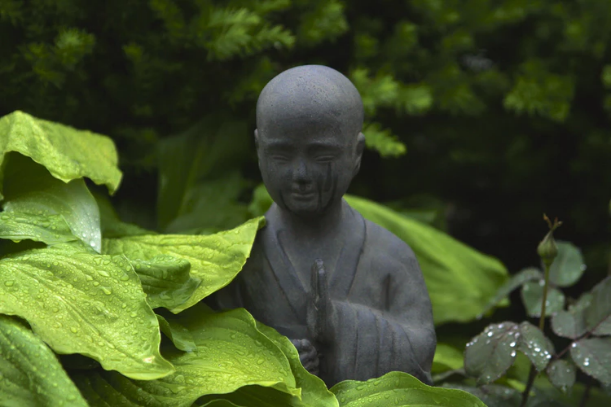Series: October 2019
Category: Communion Sunday
Speaker: Rob McClellan

Luke 17:5-6
5The apostles said to the Lord, "Increase our faith!" 6The Lord replied, "If you had faith the size of a mustard seed, you could say to this mulberry tree, 'Be uprooted and planted in the sea,' and it would obey you. THIS IS HOLY WISDOM, HOLY WORD. THANKS BE TO GOD.
Tears
Did we ever stop to consider that our tears might be a gift, to ourselves, to others, indeed to the world? In his book, The Rebirthing of God Philip Newell tells this story about his father, a pastor who spent a lot of time working with refugees:
When I was still a young student, he was involved in international refugee work, enabling thousands of refugees from war-torn Southeast Asia and Africa to find sanctuary in Canada.
My father often needed to be away from home for long periods of time to do his work. This was difficult for him. He loved his family. So, in those days when telecommunications did not so easily allow regular contact from afar, it was his practice when traveling to speak into a cassette tape recorder every day. He would tell us where he was, what he had been doing, whom he had met. Then, every week, he would send a tape home to us.
On one occasion when he had been in a refugee camp for Cambodians in the wake of the Killing Fields, he got into a car at the end of a long day’s work to be driven to his accommodation for the night. In the camp that day he had been meeting parents who had lost their children and children who had lost their parents. He wanted to tell us about them. So in the car he began to record. But when he tried to speak he started to weep. The extraordinary thing about that moment is that he chose not to stop the tape or to erase it. So what I heard as a young man when I listened to the recording was the sound of my father weeping for a few minutes.
How can we choose not to turn off the tape? How can we remain open to the flow of feeling that is an essential part of the pathway of compassion? I believe that if my father had shut down to tears in his life, he would not have been able to do what he did. There is a direct relationship between allowing ourselves to truly feel and the decision to act. Compassionate action is sustained by the courage to feel.[1]
How can we choose not to turn off the tape, not just turn off the tears, but the tape? Sometimes I wonder if what brings people here on Sundays is that it’s one of the few safe places left to cry. Some say God is somewhere to direct our gratitude. I think God is also where, and to whom, we can bring our tears. We live in this stoic culture. Women and men are warned against emotion in different ways. Our children are taught it young. “Why are you crying?!” we say. I was helping with my son’s soccer game last weekend and one of the players didn’t want to be out on the field. He’s 6. I went out and asked him what was wrong and he said, “I don’t want to be seen crying in front of people.” What are the two words adults almost always say when they cry? “I’m sorry.” We should start saying, “You’re welcome” rather than “I’m sorry.” Tears are holy.
We read from Lamentations earlier. One translation for the word lamentation is simply, “weeping.” It is a book of weeping, for a lost city, a lost nation, for lost freedom. Its inclusion in the canon is among other things a sanctioning of weeping, of crying out, as an act of faith. Part of faith is crying to God about how things are or aren’t. We learned from therapist Laura Schwartz last week in the 11:00 hour that our young people learn from what we model more than what we say. How do we model this in our lives?
In our gospel reading today, which I intentionally cut to 2 verses, the disciples ask Jesus to increase their faith, an understandable request. Jesus’ response was that you don’t need a lot of faith. A little is enough, the size of a mustard seed. Contrary to what Jesus says about such a seed growing into the greatest tree, it doesn’t. I think Jesus must have had a twinkle in his eye when he said it, because a mustard seed actually grows into a shrub, and that’s enough too, even if it is watered only by a well-shared tear. We know what people are willing to puff up their chests about, shout and carry on about, but for what are we willing to cry and how could those tears water the earth with compassion? “Compassionate action,” as Newell says, “is sustained by the courage to feel.”
We have communion today. One of the gifts we have from that night is the story of Jesus in the garden crying out to God, scared. What a gift. I hope he let his disciples see that. He must have since that story survives to this day. We can thank him not only for his crying, but his not turning off the tape. Amen.
[1] John Philip Newell, The Rebirthing of God: Christianity’s Struggle for New Beginnings (Woodstock: Skylight Paths, 2014), 21.

